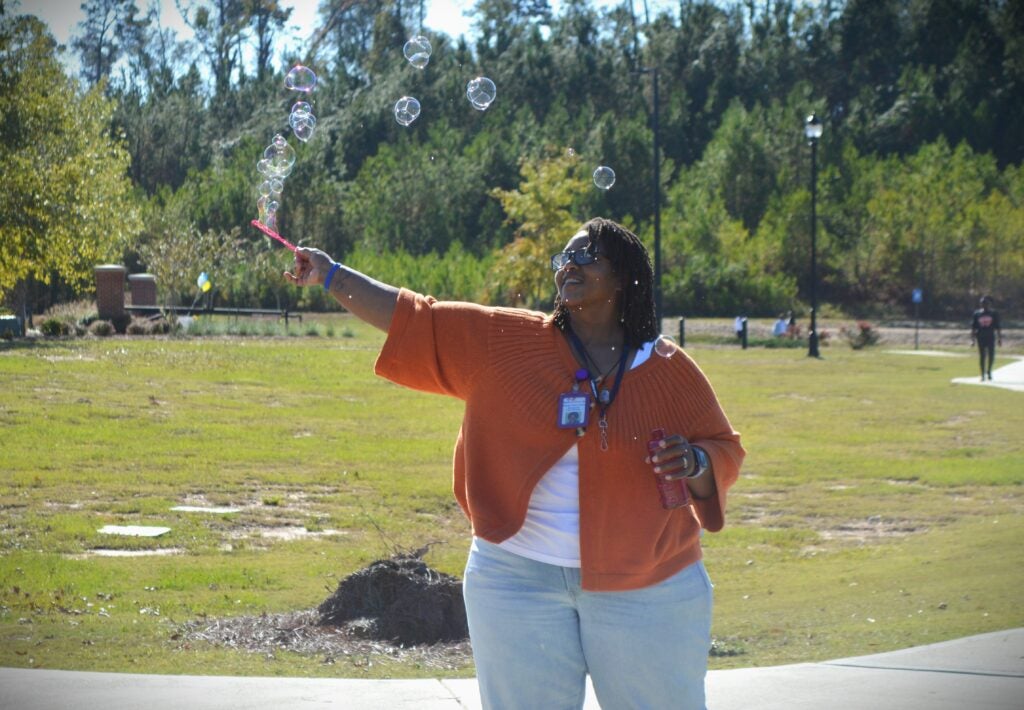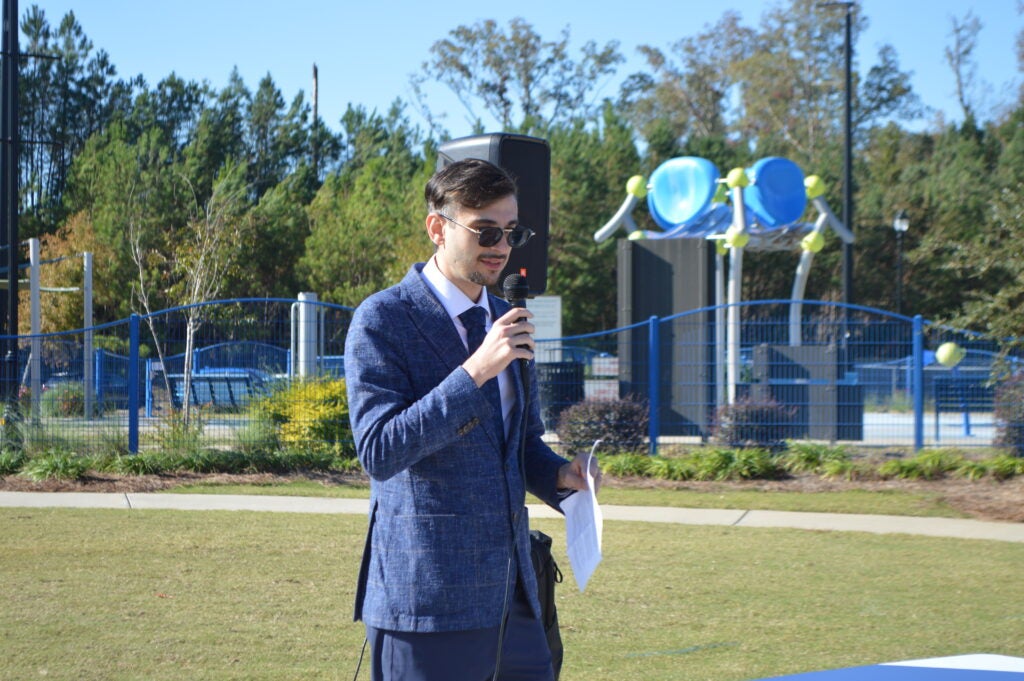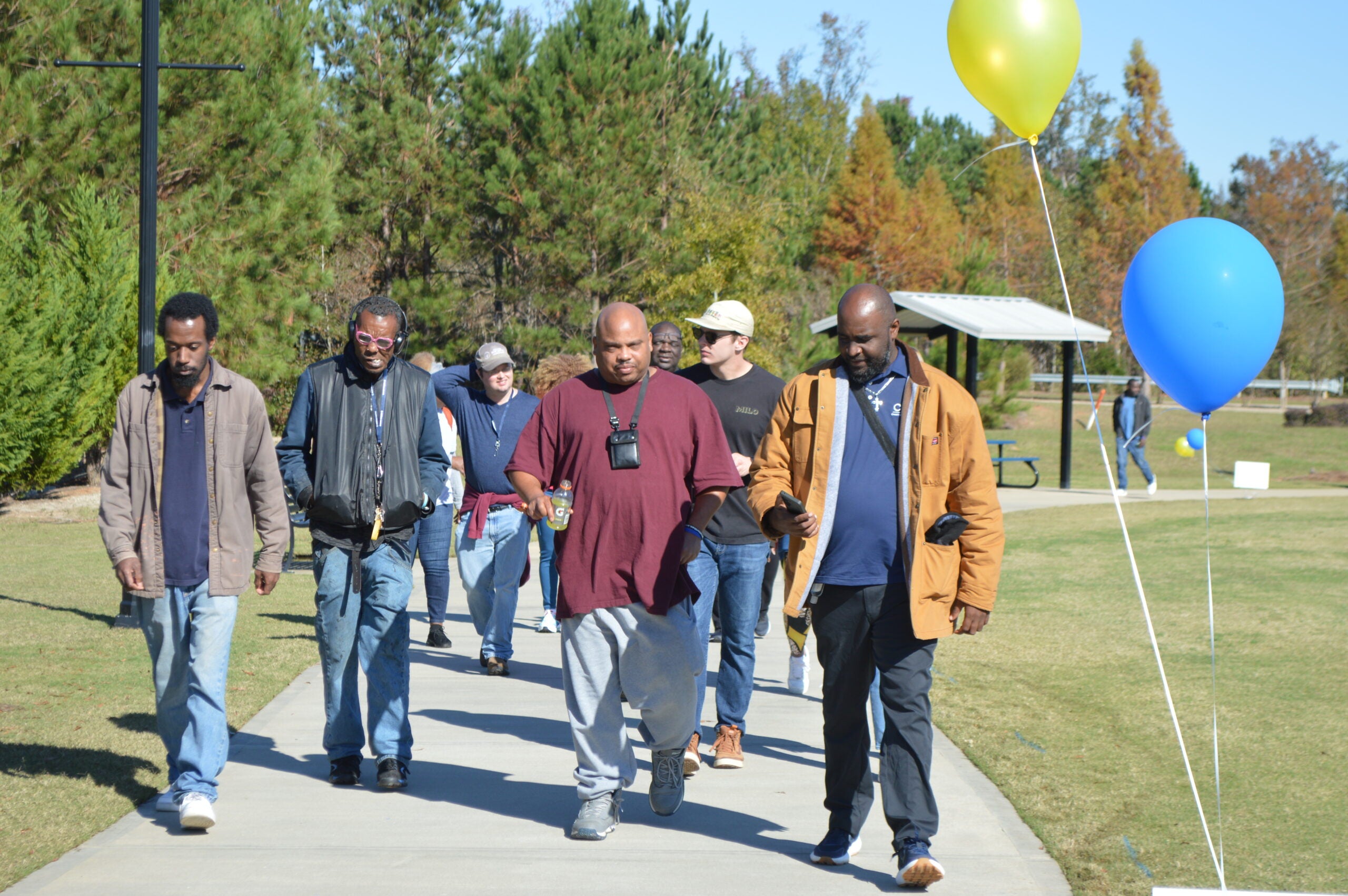The National Alliance on Mental Illness’s (NAMI) Augusta branch hosted its yearly mental health walk – known nationally as NAMI Walks – on Saturday morning at Gateway Park in Grovetown.
Merika Hawes with the NAMI Augusta Communications Committee said that this annual walk is one of the organization’s largest fundraisers.
“We use this money to help pay for NAMI programming, we have educational events that we host once a month and we also have fun events that we have,” she said.
According to Hawes, the fundraising goal for Saturday was $5,000 dollars. The community can continue to donate to the cause by visiting the NAMI Augusta webpage until Dec. 5.
Hawes said she has high hopes for the future of the walk. “We expect it to get bigger, we expect to educate the whole Augusta and its surrounding areas about mental health,” she said. “We want to make sure mental health is something that people aren’t afraid to talk about and they have somewhere to go if they have any crises.”

Mental health stats across Georgia, nation
Psychiatrist Dr. Barris Olten, an assistant professor at Wellstar Medical College of Georgia, opened the event with a lecture that emphasized the state of mental health across America today.
“Nationally in the United States, approximately one in five adults experience a mental illness annually, which equates to about 57.8 million based on the latest number that I found,” he said. “In our state of Georgia, this translates to about over 1.7 million adults.”
He added that in Georgia, one in every four children has some form of a mental health disorder, whether it’s emotional, developmental or behavioral.
“The numbers are not very encouraging, but from my standpoint, what’s most alarming is that…more than half of these individuals do not receive the care that they need, often due to barriers, barriers such as stigma, and lack of resources, access to resources,” he said.

Psychiatrist on reshaping outlooks
Olten said that he feels that many people suffering from mental health issues can ease their struggle by focusing on their internal environment versus their external environment. “I can say that I’ve come to realize that lasting change does not come from the outside,” he said. “Mostly it grows within and spreads out from there.”
Internal factors that contribute to mental health issues could include things like pessimistic thinking and negative self-talk. External factors can be things that are harder or impossible to change such as community environment, socioeconomic status, a traumatic experience or the loss of a loved one.
“The inspiring part for me and I believe for all of us, we have so much more control over these inner forces and internal resources,” added. “I definitely believe that within each of us lies the immense power to reshape our outlook, to cultivate resilience and to spark meaningful transformation both for ourselves and for our community.”
NAMI education and resources
NAMI offers multiple free educational and skills-training programs for the community. NAMI also has a helpline which can be reached at 1-800-950-6246, or in a crisis, community can text “NAMI” to 741741.










